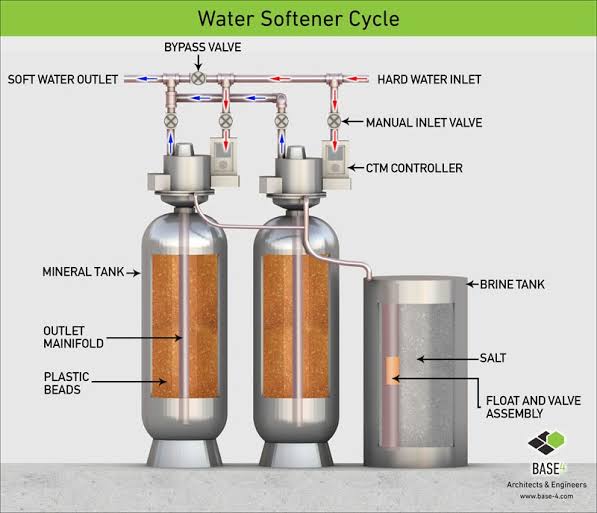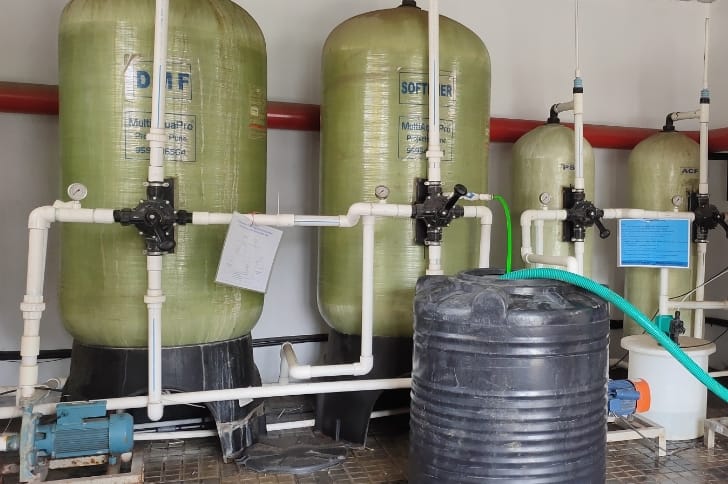Reverse Osmosis (RO)
Softners


Softners
A water softener is a device designed to remove hardness-causing minerals such as calcium and magnesium from water. These minerals, when present in high concentrations, can cause a range of problems in plumbing systems, household appliances, and industrial equipment. By softening water, the system prevents these issues, ensuring better water quality and extending the life of appliances and infrastructure.
Advantages of a Water Softener:
The following steps are involved in basic wastewater treatment:
- Prevents Scale Buildup:Hard water minerals (calcium and magnesium) can build up in plumbing systems, water heaters, and appliances, forming scale. This leads to reduced efficiency, higher energy consumption, and costly repairs. A softener prevents this by removing hardness minerals.
- Extends the Lifespan of Appliances:Water-using appliances such as washing machines, dishwashers, and water heaters last longer with soft water, as they are not exposed to damaging mineral deposits. This reduces maintenance and replacement costs.
- Improves Water Heating Efficiency: Softened water heats up faster than hard water, which means water heaters consume less energy. According to studies, water heating efficiency can improve by up to 24% with soft water.
- Reduces Soap and Detergent Usage: Soft water allows soaps, detergents, and shampoos to lather and clean more effectively. This reduces the amount of cleaning products needed, leading to savings in household or industrial cleaning operations.
